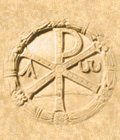           |

 VATICAN II and POST-VATICAN II DOCUMENTS
[1]
VATICAN II and POST-VATICAN II DOCUMENTS
[1]
- Second Vatican Ecumenical Council, Optatam Totius decree n. 16: "[...]Next, in order that they may shed light on the mysteries of salvation as completely as possible, the students should learn to penetrate them more deeply with the help of speculation, under the guidance of St. Thomas, and to perceive their interconnections".
- Second Vatican Ecumenical Council, Gravissimum educationis declaration n. 10: "[...]The Church is concerned also with schools of a higher level, especially colleges and universities. In those schools dependent on her she intends that by their very constitution individual subjects be pursued according to their own principles, method, and liberty of scientific inquiry, in such a way that an ever deeper understanding in these fields may be obtained and that, as questions that are new and current are raised and investigations carefully made according to the example of the doctors of the Church and especially of St. Thomas Aquinas (Cf. Paul VI's allocution to the International Thomistic Congress, Sept. 10, 1965: L'Osservatore Romano, Sept. 13-14, 1965), there may be a deeper realization of the harmony of faith and science".
- Sacred Congregation for Catholic Education, Ratio fundamentalis institutionis sacerdotalis (1970), n. 86: "[...]Uphold St Thomas Aquinas as one of the highest teachers of the Church".
|
APOSTOLIC LETTER LUMEN ECCLESIAE[2]
PAUL VI - 5 December 1975
Available in Italian, Spanish and Latin
- 23. Now, since it would be too lengthy to list all the attestations of the great veneration of the Church and of the Pontiffs for St Thomas, here we would just like to recall that towards the end of the last century - precisely when the consequences of rupturing the equilibrium between reason and faith were more evident - they once again proposed his example and his magisterium as positive factors for the unity of religious faith, culture, civil life, to be implemented in new ways in compliance with the new times. The Apostolic See invited and encouraged an authentic revisitation of Thomistic studies. Our Predecessors, starting with Leo XIII and for the strong impulse he gave with the Encyclical Aeterni Patris, recommended love for the study and teachings of St Thomas, to manifest the consonance of his doctrine with divine revelation [3], the harmony between faith and reason, preserving their respective rights [4]; the fact that the prestige recognised to his doctrine, far from suppressing emulation in research, stimulates it rather and guides it confidently.[5] Moreover, the Church underlined her preference for the doctrine of St Thomas, proclaiming that it is its own [6] [...] and to encourage it on the basis of its multisecular experience. [7] Even today the Angelic Doctor and the study of his doctrine are, by law, the cornerstone of the theological formation of those who are called to the role of confirming and comforting their brothers in the faith. [8]
NOTES
[1] The Council certainly took into account Pius XII's declaration in the Encyclical Humani generis, which summarised the situation of the Church's magisterium in the mid-20th century: "Ecclesia [...] plurium saeculorum experientia probe scit Aquinatis methodum ac rationem sive in tironibus erudiendis, sive in absconditis veritatibus pervestigandis, singulari praesentia eminere". Acta Apostolicae Sedis, 42 [1950], p. 573. The documents of Vatican II appear to be even more explicit and peremptory.
[2] Written on the occasion of the 7th centenary of St Thomas Aquinas's death.
[3] Pius PP. XII, Encycl. Humani Generis: AAS 42, 1950, p. 537.
[4] Cfr. Leo PP. XIII, Encycl. Aeterni Patris 1. c., Leonis XIII Pont. Max. Atta, I, Romae 1881, pp. 255-284
[5] Cfr. Pius PP. XII, Discorso agli alunni dei Seminari dei Collegi e degli Istituti del clero secolare e regolare di Roma, 24 June 1939: AAS 31, 1939, p. 247
[6] Cfr. Benedict PP. XV, Epist. Encicl. Fausto appetente die: AAS 13, 1921, p. 332
[7] Cfr. Pius PP. XII, Encycl. Humani Generis: AAS 42, 1950, p. 573
[8] Codex Iuris Canonici, can. 1366, par. 2
THE PONTIFICAL ACADEMY OF ST THOMAS AQUINAS
Casina Pio IV
V-00120 VATICAN CITY
TEL. +39 0669883195 - FAX +39 0669885218
E-MAIL: past@past.va
|
|







